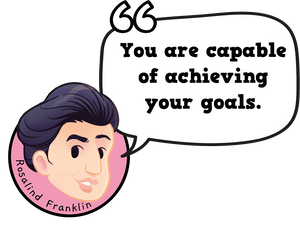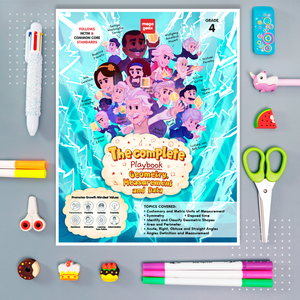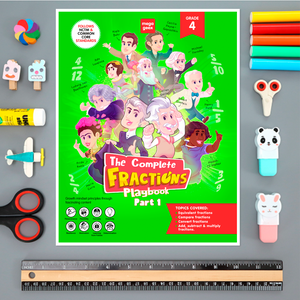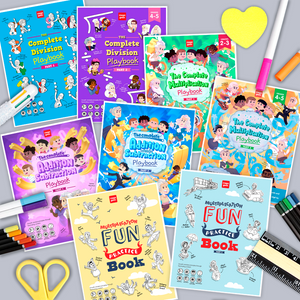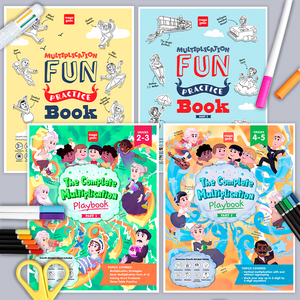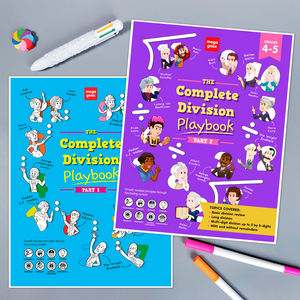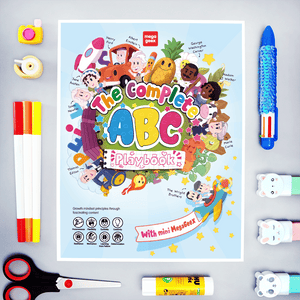How to Raise a Child with a Growth Mindset?
If you're a parent, you probably want the best for your child. You want them to be successful in school and in life. But what if success isn't about IQ or talent? What if it's about how you think about yourself and your abilities? According to research, there's one key factor that makes all the difference when it comes to success: mindset. A growth mindset.
So how do you raise a child with a growth mindset? Read on to find out!

What is a growth mindset?
A growth mindset is a belief that intelligence and abilities can be developed. This contrasts with fixed mindsets, which are the belief that intelligence and abilities are set in stone in the brain and cannot be changed.
There is a lot of research conducted on the impact of having a growth mindset, especially on a person's brain. Some of the benefits include increased resilience, greater motivation, improved learning, and higher achievement.
As a child and their brain develop these problem-solving skills they will build a remarkable ability to control how they view failure and practice strategies every day to help them overcome the fear of trying hard things.
Einstein and Growth Mindset
Einstein was one of the most influential physicists of the 20th century. He developed the theory of relativity, which is still the foundation of modern physics.
But Einstein didn't just make groundbreaking discoveries in physics. He also had a profound impact on education and our understanding of learning.
Despite being told by his teachers that he was "too stupid to learn," Einstein went on to become one of the most brilliant scientists in history.
Einstein was a strong advocate of a growth mindset as opposed to a fixed mindset. He believed that everyone has the potential to be great if they're willing to work hard, put in the effort and persevere through setbacks. In a famous quote, he said, "It's not that I'm so smart, it's that I stay with problems longer."

What are the benefits of a growth mindset rather than a fixed mindset in children?
With a growth mindset, a person is more likely to take on challenges, persist in the face of setbacks, and believe that their abilities can be improved with effort.
This positive attitude towards learning and problem-solving can have a lasting effect on their future efforts. Children with a growth mindset are more likely to see failure as a chance to learn and grow, rather than as a personal indictment.
This positive attitude towards challenges and setbacks can lead to greater academic achievement and life success. Studies have shown that children with a growth mindset are more resilient in the face of difficult tasks and are more likely to persevere when faced with adversity.
They also tend to have higher grades and test scores and are more successful in college and in the future.

8 Strategies Parents Can Use to Teach a Child to have a Growth Mindset
1. Praise their efforts
One of the best ways to help your children develop a growth mindset is to praise their effort and progress, rather than their intelligence. This is often referred to as process praise.
For example, you might say, “Great job on that math test! You must have worked really hard!” This will help your child see that their effort leads to success, not just their natural aptitude.
This will teach them that they can improve with hard work and dedication, no matter their starting point.
2. Modeling problem-solving skills:
Be sure to lead by example! If you have a fixed mindset, your child is likely to adopt the same attitude. Instead, demonstrate a willingness to learn new things and recognize challenges.
When you face challenges, talk about how you are going to work through them until you reach your intended outcome. Use positive self-talk and do not let your own fears get in the way.
When children see their parents being like this in the face of adversity, it sets a great example for them to follow.
Try viewing failure as a learning curve and a way to train your brain to build resilience.

3. Persist
Encourage your child to try a range of things and remind them to persist when they are difficult. This will help them see that they can stretch themselves and grow their abilities by trying new things and persevering even when they make mistakes.
Einstein famously said, “anyone who has never made a mistake, has never tried anything new”. Parents often protect their children from the prospect of failure and disappointment, discouraging them from exploring the growth that uncertainty and discomfort facilitate.
Failure is a part of life and how we learn and grow. It is important for children to understand that everyone makes mistakes and that how we learn from them counts.
Teach grit and persistence - Resilience is key in life, and it starts with overcoming setbacks. Help your child see that obstacles can be challenging and our mindset will play a big part in how we try to overthrow them. A fixed mindset will tell our brain that we need to give up but when we apply smart strategies and persist through the task, it can be completed.
4. Dealing with setbacks and failure
In addition to being good role models, parents can also help their kid's brain transition from a fixed mindset to a growth mindset by teaching them how to deal with setbacks and failures.
It’s important that they understand that these are just temporary setbacks and that they can learn from them.
Children learn from mistakes - It's important that children understand that mistakes are part of the learning process. Don't be afraid to use process praise. So even if the grade is 'fail' they can be praised on the process of studying for the test rather than the final grade.
Help kids see failures as opportunities to grow and learn, instead of something to be ashamed of.
5. Try new activities!
Another great way to promote a growth mindset in children is to create opportunities to try new things and take on challenges.
This will help them realize that they have the capability to grow and learn from all challenges, even if they don’t succeed at first.
Promote a love of learning - Show your kids that learning can be fun! Take them on trips to the library, let them explore new hobbies, and introduce them to different subjects and resources. This will help them develop a lifelong love of learning.
6. Encouragement
Encourage your kids to keep trying even when things are tough in their lives. They may not succeed at first, but if they keep trying and using new ideas, they will eventually get there.
It is also important to praise your child when they do succeed, as this will help them to feel good about themselves and their abilities.

7. Teach them to keep trying to solve a difficult problem
Often the task involves more than one step. New standards used in schools are intended to make it easier for children to think through issues that require analysis rather than simple rote memorization.
Different issues require different strategies for the completion of a specific task. When children have problems, ask if they can solve them with some alternative means.
Teaching your kids that being stuck is a challenge for your brain to look for new strategies they can apply to the problem.
8. Try Journaling
Journaling with your child is a great way to allow them to reflect upon their learning and a method to allow their brain to grow. It can help them to identify areas that challenge them, build confidence, and set goals for themselves.
It can also be a nice bonding experience for you and your family. Here are some tips to develop a journaling practice with your child:
-
Make it fun: Choose a journal that your child will enjoy using, and make sure to include plenty of pictures and colors.
-
Daily entries: Set aside some time each day for your child to write in their journal. This doesn't have to be a long period of time, just a few minutes will do.
-
Help them to reflect on their day: Ask your child questions about their day, and encourage them to write down their thoughts and emotions.
-
Read their entries together: Take some time each week to talk through your child's journal entries with them. This will help you to understand how they're feeling about their learning, and you can offer support and advice where needed.

The Final Word
Einstein is often quoted as saying, "The mind is like a parachute - it only works when it is open."
This statement is at the heart of the growth mindset - the belief that intelligence and talent are not fixed traits, but can be developed through work and dedication.
Undoubtedly, there are many challenges and risks when trying to build a growth mindset but the time is now to take the next steps and take the power as a responsible parent! Embrace the risks and be the parent who sees a challenging situation as an opportunity to develop!

